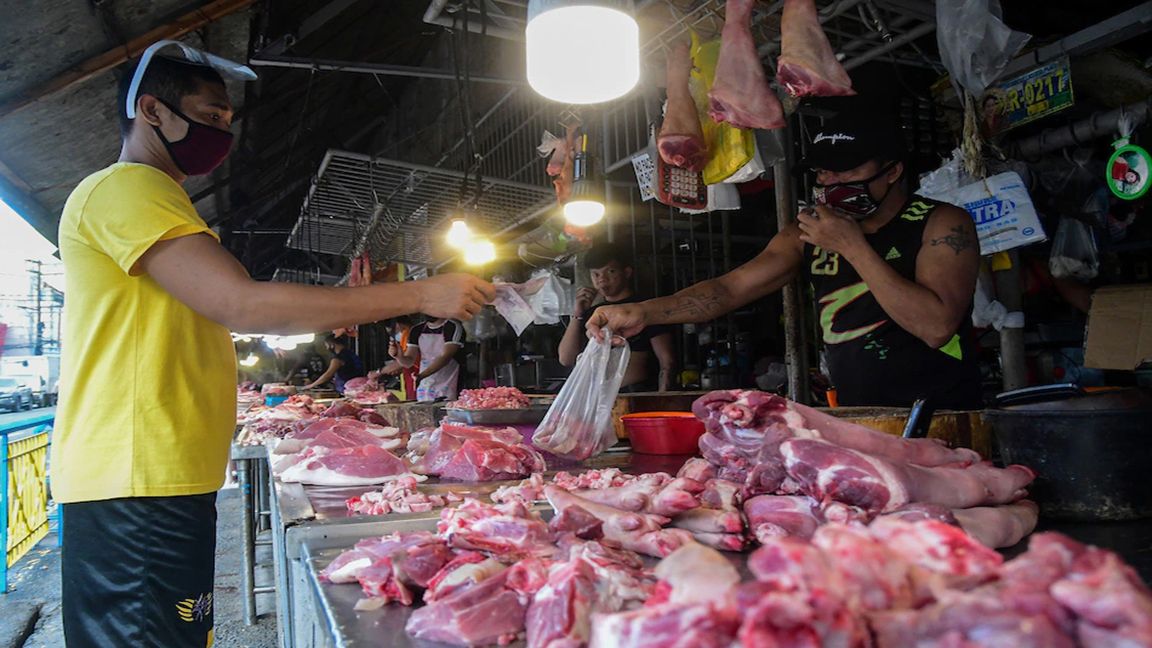The government lost P3.4 billion in tariffs on imported pork, whose tariff rates were cut and the minimum access volume raised to ensure adequate supply locally, but the measures still failed miserably in pulling down the prices of pork products.
LAWMAKERS have grilled agriculture officials on the prudence of pork tariff cuts and minimum access volume for pork imports, which they said did not really reduce pork prices but instead led to huge revenue losses for the government amounting to P3.4 billion.
The foregone revenues should have been used instead to directly giving “ayuda” to the hog raisers, which would have made better sense, the solons said.
Low collections
This developed as the Bureau of Customs said its collections were significantly lower as of mid-November as the tariffs on pork were reduced and the minimum access volume raised to ensure supply in the local market.
But even with abundant supply, prices did not drop, as was expected, so someone must have made a killing.
In a statement, the BoC said the government has lost some P3.4 billion in revenues since tariffs were slashed from April 7 to November 12.
The BOC added it had collected P3 billion in revenues from 197,000 metric tons (MT) of pork imports during the reference period.
“To compute the effect of the two Executive Orders, we multiplied the dutiable value of meat by 25 percent—less 5 percentand 15 percent—which were already paid for EO 128,and multiplied the dutiable value by 20 percentand 15 percent for EO 134.
The result showed a revenue loss of P3.4 billion,” BOC Commissioner Rey Leonardo Guerrero said in a recent executive committee meeting of the Department of Finance.
Prices still high
Last week, lawmakers raised concerns on the effectiveness of the twin measures to address elevated pork retail prices: the reduction of tariffs and expansion of the pork minimum access volume (MAV).
A joint hearing by the House Committee on Agriculture and Committee on Trade and Industry saw lawmakers grilling agriculture officials on whether the twin measures have lived up to their promise seven months after.
“Maybe the EOs we made were mistakes because the measures we hoped to be the solution to the high prices of pork, as it turns out—fast forward today after six months, did not pull down pork prices to August 2020 levels,” Deputy Minority Leader Stella Luz A. Quimbo said during the hearing.
“We lost a lot of tariff revenues giving those losses as ayuda to hog raisers is a better option,” Quimbo stressed.
Mistake
“Perhaps, we made a mistake with that policy and we better look for alternative solutions because clearly we have not received any reprieve at this point in time,” Quimbo added.
Agriculture officials defended the twin measures and explained that the benefits are not yet fully realized because numerous non-tariff measures delayed and derailed the arrival and distribution of imported pork in the market.
National Federation of Hog Farmers Inc. (NFHFI) President Chester Warren Y. Tan concurred in Quimbo’s statements, saying the measures may be deemed a success if consumers indeed benefited from them.
“There is no problem if the consumers really benefited from it, but they did not. We lost government revenues, the consumers did not benefit, and the private hog industry stakeholders are affected,” Tan said.
Wrong rates
This, as the recent figures somewhat validated an earlier estimates by the Federation of Free Farmers (FFF) noting that the government incurred about P3.3 billion in losses from April 7 to end-October.
Customs’ data sets on import filings showed that certain imports were assessed with tariffs that should have been phased out during a given period.
For example, some 434.815 MT of pork imports worth P35.344 million were filed by importers under the 5-percent tariff rate from June to August.
The 5-percent tariff rate on in-quota imports, through Executive Order EO 128, only lasted from April 7 to May 14, following the issuance of EO 134 that superseded earlier rates.
Incorrect tariff rates
Based on BOC data, government lost some P93.859 million of revenue due to incorrect tariff rates applied for certain pork imports from June to October, nearly equivalent to one-fourth of the government’s P400-million swine repopulation program.
Industry groups such as FFF, Philippine Chamber of Agriculture and Food Inc. (PCAFI) and NFHFI have urged customs to investigate the discrepancy in tariff rates to ensure the government gets the correct revenue, which could be used to bankroll programs to revive the domestic hog industry.
FFF National Manager Raul Q. Montemayor said the BOC must explain why there were incorrect tariff rate applications when in fact import filings are made electronically.
Tags: #DepartmentofAgriculture, #Congress, #porkimports, #tariffcuts, #MAV, #economy
